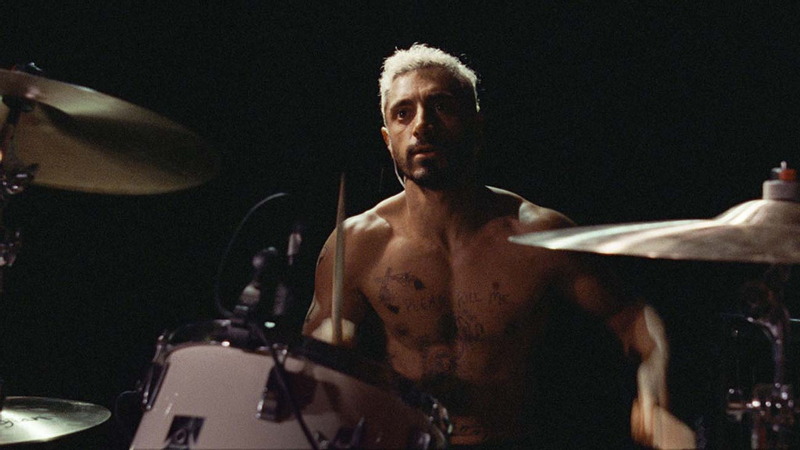Director – Darius Marder – 2019 – US – Cert. 15 – 120m
****1/2
A drummer must come to terms with a sudden loss of hearing which threatens everything he has worked to achieve – already out on Amazon Prime, in cinemas from Monday, May 17th
This is a triptych about the onset of hearing loss in the context of rock and roll, a redemptive rehabilitation to the world of deafness in an isolated rural community run by and for deaf people and an attempt after recovering one’s hearing to some extent via surgical implants to come to terms with the fact that life following hearing loss can never be quite the same again. The two hour film splits roughly into three very different sections along these three lines.
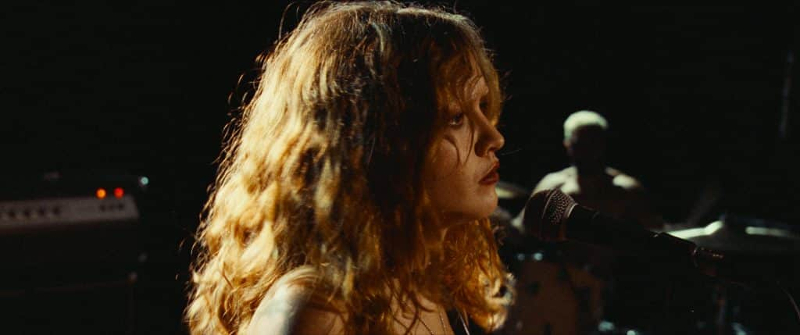
Ruben (Riz Ahmed) and Lou (Olivia Cooke) are touring the States in their RV as a two person metal band, she on guitar and vocals, he on drums. Performances on stage are loud and energetic to enthusiastic crowds. In complete contrast to those moments of adrenaline rush, Ruben’s days are comparatively quiet. His morning routine consists of getting up early while Lou is asleep, doing some push-ups, putting on the coffee, dusting the mixing console while listening to 1930s jazz, making two smoothies. Their days consist of relaxing dancing to slushy love songs, driving to the next venue, setting up the merch stall, sound checking, gigging.
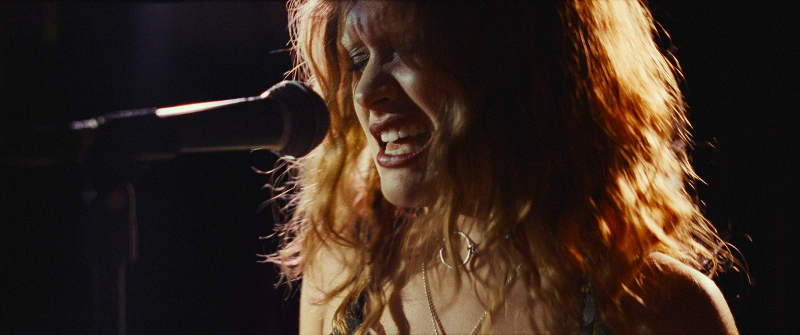
Then one day, it’s different. Suddenly his hearing, which has always been fine, is shot. His visit to the chemist (who he can hardly hear) to buy medicine results in an immediate consultation with a doctor who runs some word recognition tests with him. On a scale of one to ten, his hearing is a two. He’s told to “eliminate all exposure to noises” and informed that for 40 to 80 Grand he can have surgically installed implants to help rectify the problem. Significantly, he’s also told, “the hearing that you lost is not coming back.”
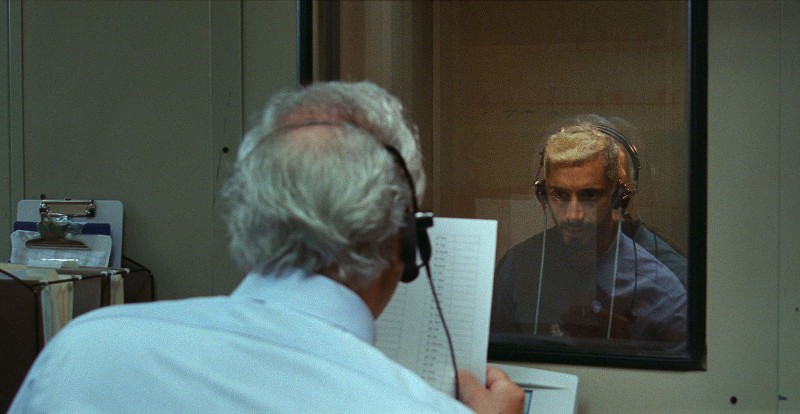
Now he has to break all this to Lou. He wants to continue with the tour, she is horrified at the prospect and extremely concerned for his health and on the phone to their manager (Ruben can talk to the phone but can’t hear anything). Eventually she finds a community of deaf people who may be able to help and takes him there.
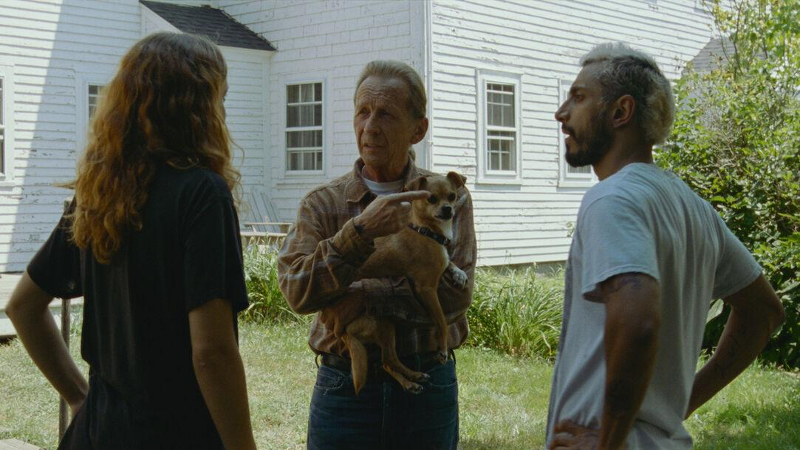
It’s run by deaf, former alcoholic Joe (Paul Raci) and backed by a church (but with no religious input apart from being clearly underpinned by the Christian injunction to help and serve other people in need). There’s a cost, but there’s a system of grants for people in need and Joe tells tells Ruben he definitely fits the criteria as someone in need, so the cost is not an issue. Ruben isn’t sure about it, though.
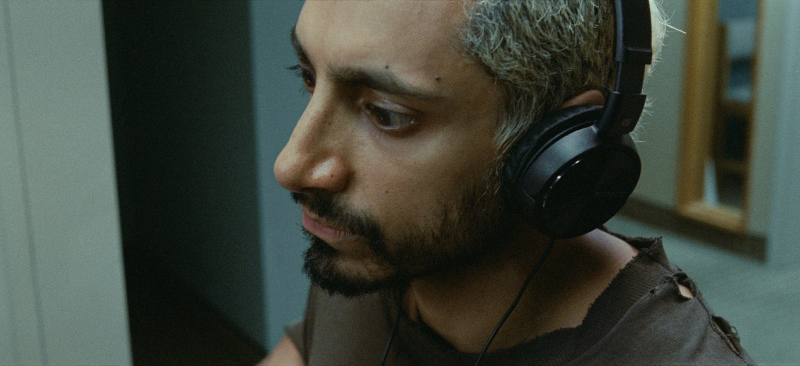
Riz Ahmed seems currently to have cornered the market in playing musicians whose careers are cut short by debilitating medical conditions. Like the rapper the same actor plays in Mogul Mowgli http://jeremycprocessing.com/mogul-mowgli/ (Bassam Tariq, 2020), Ruben refuses to accept the career-stopping implications of his diagnosis.

Hollywood tends to portray the problems of non-disabled people, so to suddenly have a protagonist lost their hearing and have to deal with it is a welcome step in the right direction in terms of portraying people with disabilities. (See also the Sci-Fi horror entry A Quiet Place, John Krasinski, 2018 and sequel which deals with deaf people and hearing people forced by circumstance to keep quiet and communicate by sign language.)
The first section of the triptych is about the initial stages of hearing loss, the refusal to believe and come to terms with the condition, with Ruben determined to somehow carry on as he has been. Lou is beside herself seeing that he needs a break from his career, but all Ruben wants is the means to carry on because there must be one and besides, stopping would be impossible. (A situation which, curiously, has unintented resonance in the current pandemic where many just want to carry on business as before even though it’s obvious a change of direction is needed.)
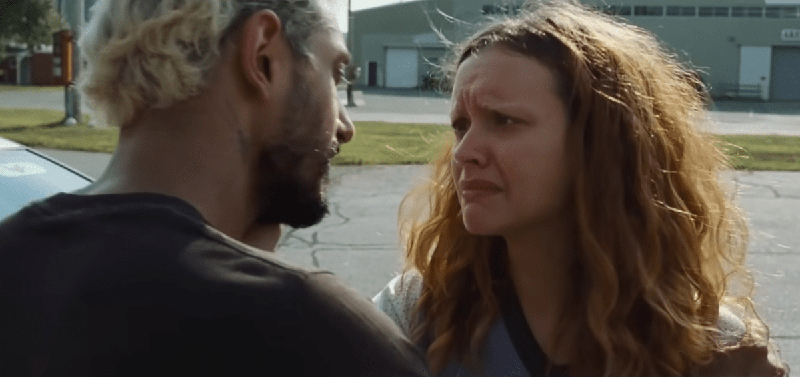
The second section is about Ruben in Joe’s community where the hearing Lou must leave him rather than stay because her lack of disability rules her out of staying under the community’s rules. Joe stops Ruben’s attempts to be helpful, for instance by fixing a faulty section of roof, to make him concentrate instead on sitting in a room with paper and pen and writing. Ruben is put with deaf kids to learn how to sign and get up to speed and in a couple of scenes – one with a group of kids in a formal class setting with upturned buckets and drumsticks, one with a lone boy drumming with hands on the surface of a playground slide – uses his musical and rhythmic expertise to give a workshop to or simply to communicate with the kids or lone kid.
In the end, though, the desire to return to normality proves too much – he sells his RV and drums on the stipulation that he can by them back again within a limited time frame in order to fund the hearing implants. When they don’t restore his hearing in quite the way he’d imagined, he’s forced to rethink. This section also includes Matthieu Almaric as Lou’s separated and extremely rich dad from whom Lou has an idea he can get the money to buy back vehicle and kit. As with his regular hearing and his time at the community, this too doesn’t work out the way he planned.
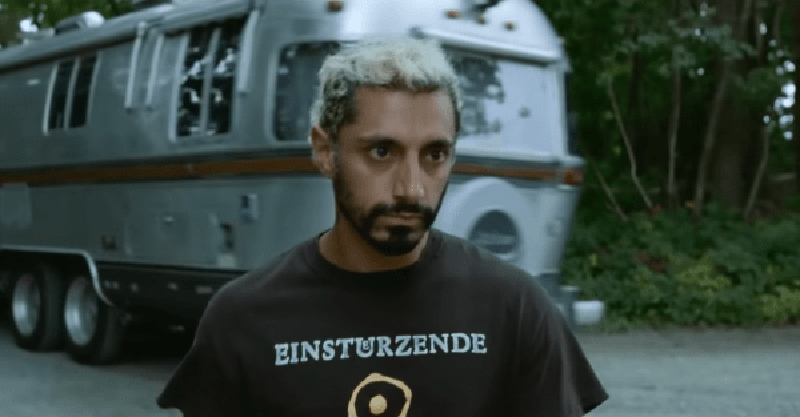
Much is conveyed in the extraordinary sound design. Everyday sounds in the opening minutes after the film’s first gig scene such as the drip, drip drip of the coffee machine are gone, with similar images underscored with muffled sounds or no sounds at all. At Joe’s community, the tone of the piece is quite different. No one is trying to listen or hear, communication is sought and fostered through other means.
In the third section, things are different again as the deluded Ruben attempts to reinsert himself back into the would of the hearing as if nothing has changed following his surgery. He just about manages it in one-on-one situations, but confronted with a party put on for Lou by her dad with dozens of guests, overlapping sound and sound missing certain frequencies quickly inform him and us that this isn’t going to work out. (The film deservedly won Oscars in both Sound and Film Editing categories.)
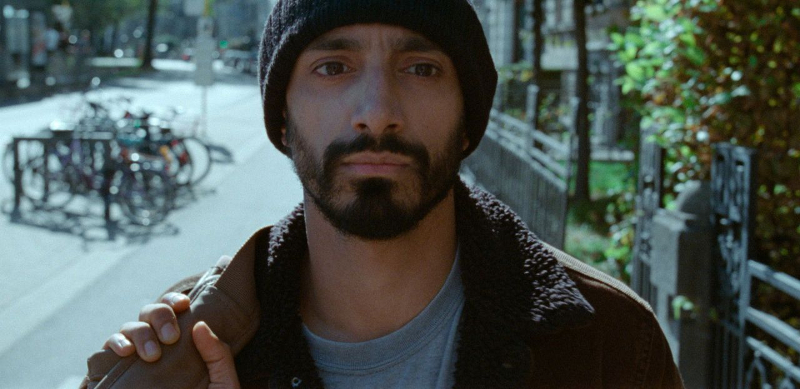
On one level this is a film about regular, gigging musicians; on another, it’s about the onset of hearing loss – a problem that can affect anybody but one which is particularly prevalent in that profession. The great thing about the film is that it understands both. Make sure you see (and hear) it in a cinema with a really good sound system.
Sound Of Metal is already out on Amazon Prime and also in cinemas from Monday, May 17th.
Trailer:
